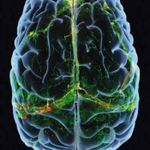By continuing or choosing “OK”, you accept that we and our partners use cookies to improve our website's performance and provide you with a customized user experience, including by measuring website traffic and deliver ads that are more relevant to you and your interests. You can read more about the purposes for which we and our partners use cookies and manage your cookie settings by visiting our
Cookie Policy. We have made some updates to our
Cookie Policy. Please note that your continued use of the Acast service will be deemed an acceptance of this update.









